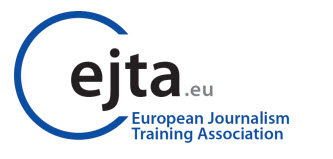Twenty journalism schools in fifteen European countries will be fact-checking political claims in the media in the spring of 2019. Tackling misinformation during the EU election campaign is the main objective of the EUFACTCHECK project. With their work the students want to contribute to a more fact-based public debate.
All participating Journalism schools are member of the European Journalism Training Association (EJTA), that groups about seventy journalism centres, school and universities from about thirty countries across Europe. With the project EJTA wants the journalism students to grow a deeper insight and interest in democratic processes by enhancing their media literacy and as such developing both critical understanding of the media and active participation in the media. In this way the quality of journalism and journalism education will be improved.
Involvement
“With our project we want to contribute to the accuracy of European political statements made by media and politicians in order to enhance a more fact-based public debate”, says Nadia Vissers, coordinator. “That’s why via social media EU citizens can ask the journalism students to check claims about EU politics. As such the project fosters the growth of democratic awareness and media literacy.”
Research shows that collaborative fact-checking projects such as this one, strongly improve the audience’s understanding of the process and trusting of the output. Eventually EUFACTCHECK hopes to empower a large group of European citizens and voters to become actively involved in the European debate and consequently help shape the future EU policies.
Unique methodology
Two lecturers of AP University college in Antwerp, Belgium, developed a flowchart to help the students prepare their fact-check. All participating schools will use the methodology. “We don’t claim the flowchart is the only methodology to perform a fact-check”, says Frederik Marain, one of the authors. “But it is a pedagogical tool that gives students a clear insight in the claim and helps them to set up their fact-check.”
From Finland to Italy, from Spain to Russia
The fifteen participating countries in the project are: Austria, Belgium, Croatia, Denmark, Finland, France, Georgia, Germany, Greece, Italy, Russia, Spain, Sweden, The Netherlands and the United Kingdom.
EUFACTCHECK cooperates and shares expertise with other fact-checking organisations such as Firstdraftnews, CrossCheck, IFCN, DigDeeper,… The project is supported by the Council of Europe and the Evens Foundation.
EJTA groups about seventy journalism centres, schools and universities from about thirty countries. They work together to improve journalism education in Europe, enabling members to collaborate on exchanges and teaching and research projects, and meet regularly to exchange ideas and information.
- Visit the eufactcheck.eu website
- Follow and share our posts on Facebook and Twitter.
- Download the EUFACTCHECK flowchart here (PDF file).
- The guidelines of EJTA’s fact-checking project EUfactcheck were published in February 2020 and launched during the Train the trainer in Ljubljana. If you’re interested in practical takeaways and concrete process and project descriptions, you can download the pdf here.




1 Comment